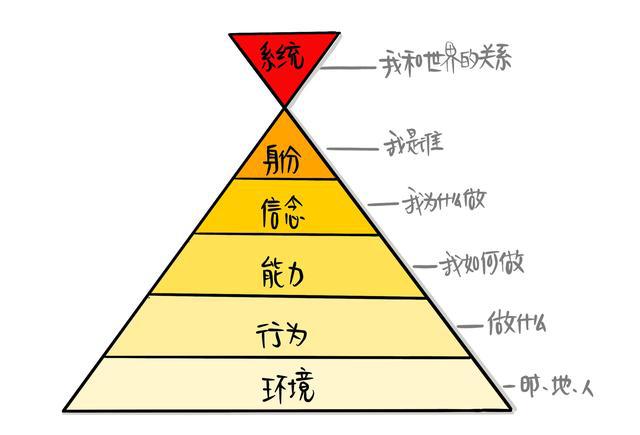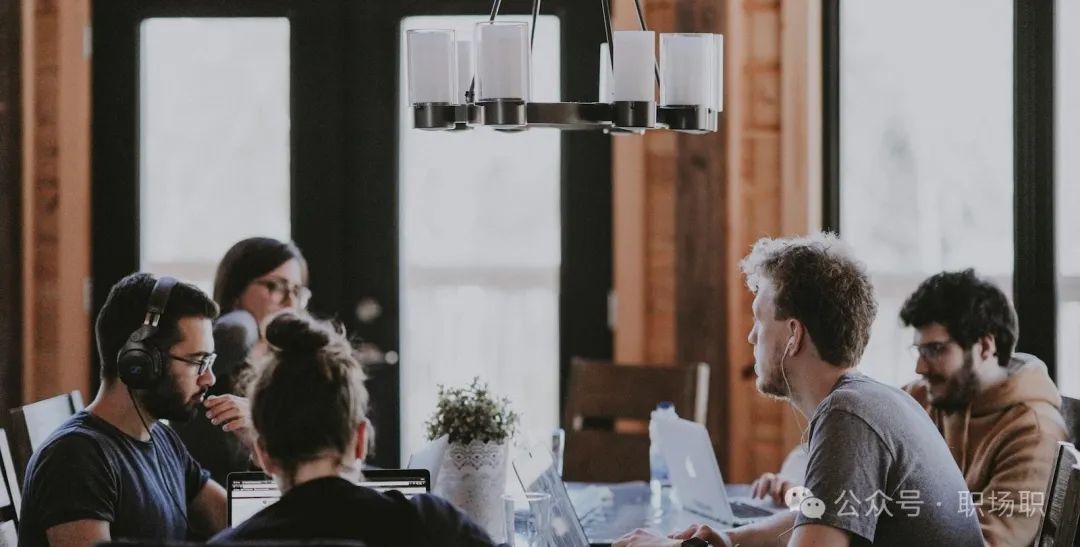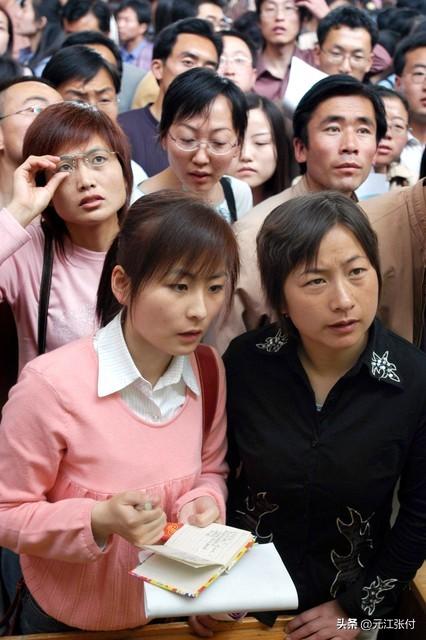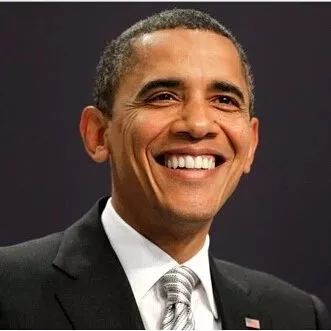
精彩英语演讲
提升“英文言值”从这里开始
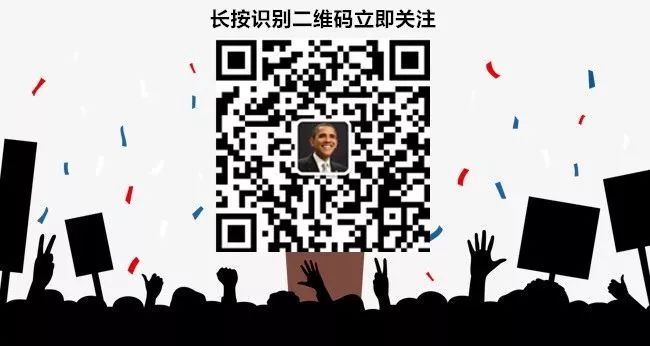
英语演讲君按
2016年4月30日,前纽约市市长、Bloomberg创始人迈克尔·布隆伯格在密歇根大学的2016届毕业典礼上对毕业生发表演讲。
布隆伯格在演讲特别强调说:“当一位民粹主义候选人许诺提供免费大学、免费医疗以及一匹小马驹,而另一位候选人许诺要让别国为我们的需求买单时,我们要切记:那些许你免费午餐之人,必会在早餐时将你生吞活剥。”
布隆伯格2016年密歇根大学毕业演讲稿双语版
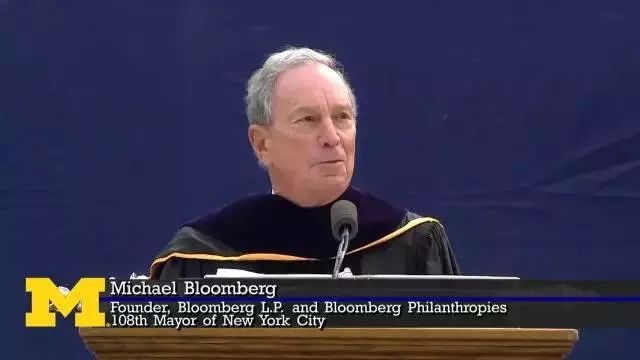
Thank you, President Schlissel, and the Board of Regents. And good morning to everyone!
I can’t hear you. Good morning. Much better.
It’s a great honor to be on this great campus where so much history has been made. And it really is a thrill to walk in the footsteps of Gerald Ford, James Earl Jones, Lucy Loo, and Tom Brady! Now I’m told that no quarterback has played in more Super Bowls than Tom Brady and just in case there are any New Yorkers here, I would just note that he played against the Giants in two of them. And in the interest of being diplomatic to my host, I can’t remember who won both those Giants games.
I’m honored to have been asked to speak to all of the faculty, administrators, alumni, and most of all, to the great class of 2016! Now, I have not taken my assignment lightly, I really want to understand what it felt like to attend this historic university. So I did my homework.
…
So, graduates: This is a great day, but there’s another group here that also deserves a big round of applause: your parents and families. Put your hands together for them. I see them out there, beaming with pride, not even thinking about how much has cost them to get you to this day or the possibility that you’ll soon be moving back to their basement.
Of course, there were many other people who helped you on your journey, so after you receive your diploma, and as you make your way in the world, remember that your greatest achievements – like today’s – will owe an awful lot to the people around you.
If there’s a secret to success beyond hard work and good luck, it’s that the more we say ‘we’, and the less we say ‘I’, the farther we go. And that’s not something, just something, that coach Harper tells the football team. It’s something that the most effective leaders in the world understand and take to heart. Remember: There is almost nothing we do in life that we do alone.
In fact, the most useful knowledge that you will leave here with today, like the importance of teamwork, has nothing to do with your major. It’s about how to study, how to cooperate, how to listen carefully, how to think critically, and how to resolve conflicts through reason. In other words, it is working with others. Those are the most important skills in the working world and it’s why colleges have always exposed students to challenging and uncomfortable ideas.
The fact that some university boards and administrations now bow to pressure groups and shield students from these ideas through ‘safe spaces,’ ‘code words,’ and ‘trigger warnings’ is, in my view, a terrible mistake. The whole purpose of college is to learn how to deal with difficult situations – not to run away from them.
A micro-aggression is exactly that: micro! But in a macro-sense, one of the most dangerous places on a college campus is the so-called safe space because it creates the false impression that we can insulate ourselves from those who hold different views. We can’t – and we shouldn’t try, not in politics, or in the workplace. Graduates, in the global economy, and in a democratic society, an open mind is the most valuable asset you can possess.
And today, I’d like to talk a little bit about why that’s true based on the lessons I’ve learned over the course of my career. Let’s start with the global economy, and let me put in perspective the job market many of you are entering. For the first time in human history, the majority of people in the developed world are being asked to make a living with their minds, rather than their muscles. For 3,000 years, humankind had an economy based on farming: till the soil, plant the seed, harvest the crop. Hard to do, but fairly easy to learn.
Then, for 300 years, we had an economy based on industry: mold the parts, turn the crank, assemble the product. Hard to do, but once again fairly easy to learn.
Now, we have an economy based on information: acquire the knowledge, apply the analytics, use your creativity. Hard to do, hard to learn, and even once you’ve mastered it, you’ll have to start learning all over again, pretty much every day. I wanna give you some advice:
If you have the luxury of more than one job offer – now or in the future – don’t pick the one that pays the most; pick the one that teaches you the most and don’t worry if the people around you seem quicker or smarter. Personally, I have always tried to surround myself with those that have high IQs and are better trained than me. Simply, how can you compete? You can’t overwork them. No one can work more than 24/7. So the worst case is that you’re tired.
In my company, I always give the most complex and important projects to the busiest employees we have. Why? Because they are the hardest-working and most dedicated. They’re the first ones into the office and the last to leave. They’re the ones that take the shortest lunch breaks and the least vacation. It may not sound like great fun, but in the end, you have to set your priorities.
There are no guarantees, but the secret to success is not rocket science. It just requires true dedication and a willingness to go the extra mile and some luck. But I have noticed repeatedly: the harder you work, the luckier you get. Whatever your field, volunteer to take on some new assignments even if they’re outside your comfort zone. Take the initiative on your own to learn and develop new skills and to build contacts who can help you down the road. When will you have learned enough? Let me put it this way: I know of no Nobel Prize winner who has stopped studying. And in the information economy, everyone – in both white-collar and blue-collar jobs – will have to keep deepening their knowledge and adapting to technological change.
Keeping up with technology may sound simple, but when you are older, your kids would probably think of Facebook and Instagram the way you today think of beepers and Walkman. And for the record, yes, I am on the Instagram. It did take me a little while to figure it out, but it took me even longer to convince my daughters to let me follow them.
My life is a perfect example of how important it is to keep an open mind about careers and technology. After college, I went to business school in hopes of landing a middle management job in a factory. I had no idea that factories would soon be closing all across the country, and neither did anyone else.
I ended up finding a job at a Wall Street firm. I loved the job, and soon, my interest in managing a plant disappeared. After that, I thought I’d stay at that firm forever. And I might have – except for one small thing: I got fired.
When I was 38 years old, it was a bitter pill to swallow, but it was also the best thing that ever happened to my career. It led me to start a tech company to computerize real-time financial data. That seems simple now, but that was back in 1981 – the dawn of the computer age. We were trying to invent a computer that no one wanted with technology that didn’t exist – a classic example of innovation. Everyone said I was crazy, and maybe they were right. I had only a limited background in computers, and I had never started or run a company, but with a lot of help from some very talented and driven people, we succeeded beyond our wildest dreams.
So the lesson is: Whatever you think your dream job today is, don’t get too attached to it. Chances are, if the job still exists in 15 years, it will be very different – and you may have found other pursuits. Keeping an open mind to new ideas will be essential to your professional success, and it will be just as crucial to our collective future as a democratic society.
And that’s the other lesson I’ve learned that I’d like to share with you today. During the 12 years I had the honor of serving as Mayor of New York City, I witnessed a disturbing change in the nature of American politics: in the rise in extreme partisanship and intolerance for other views.
I’m a political independent, but over the course of my life, for non-ideological reasons, I’ve been a Republican and a Democrat. So I can tell you: Neither party has a monopoly on good ideas; and each demonizes the other unfairly and dishonestly. This is not a new phenomenon – but it has reached a dangerous new level.
In 1796, George Washington spent much of his farewell address warning Americans against political parties, which he called ‘the worst enemy’ of democratic governments. He wrote of the natural tendency parties have to elevate a single leader who seeks power, in his words, ‘on the ruins of public liberty.’
Today, in this political season, it’s worth remembering what Washington had to say. And so, allow me to read a brief passage from his farewell address.
Partisanship, Washington wrote, ‘serves always to distract the Public Councils, and enfeeble the Public Administration. It agitates the Community with ill-founded jealousies and false alarms; kindles the animosity of one part against another, and foments occasionally riot and insurrection…A fire not to be quenched, it demands a uniform vigilance to prevent it from bursting into a flame…lest, instead of warming, it should consume.’
Well said, George. Where are you now? We need you. We have survived more than 200 years of political parties largely because the Founding Fathers created checks and balances to temper the fires of partisanship. Of course, the Founding Fathers also excluded most Americans from their vision of democracy because they feared what democracy might produce. But over the past two centuries, through the sacrifices of so many civil rights leaders and soldiers, the promise of equal rights has spread across income, religion, race, gender, and sexual orientation.
Now, we still have a long way to go, and it would be a mistake to think that our progress is irreversible or that Washington’s warning is a relic of history. Neither is true and neither will be. Democracy and citizenship will always require constant vigilance against those who fan the flames of partisanship in ways that consume us and lead to the ruins of public liberty.
We have certainly seen such figures before, in both parties. In the 1930s, there was the despotic Huey Long in Louisiana, and just a few miles up the road in Dearborn, Father Coughlin blamed ‘Jewish conspirators’ for America’s troubles. Then came Charles Lindbergh in the 40s, Joe McCarthy in the 50s, George Wallace in the 60s, and Pat Buchanan more recently.
Every generation has had to confront its own demagogues and every generation has stood up and kept them away from the White House, at least so far. And now, it’s your turn.
In this year’s presidential election, we’ve seen more demagoguery from both parties than I can remember in my lifetime. Our country is facing serious and difficult challenges, but rather than offering realistic solutions, candidates in both parties are blaming our problems on easy targets who breed resentment. For Republicans, it’s Mexicans here illegally and Muslims, and for the Democrats, it’s the wealthy and Wall Street.
The truth is: We cannot solve the problems we face by blaming anyone. We are in this together, and we all must be part of the solution. America’s power in the world comes not from the walls we build, but the doors we open, and it comes not from tearing down success, but building up opportunity.
Now, American citizenship does not require much of us. We have no military draft; no mandatory national service; no compulsory voting. Our taxes, compared to Europe, are relatively low. And yet, our voting rates are terrible, and they’re especially low among young people. And this year, you can help change that.
Voting is the only way to stop demagogues. And the best way to stop demagogues from rising in the first place is to elect leaders with the courage to face reality, make tough decisions, and lead from the front, rather than following from behind. That has become harder over time. So let me share a story from my time in City Hall that illustrates why.
In 2002, we banned smoking in New York City’s bars and restaurants, and it caused a huge backlash. We got a lot of angry calls and letters, and I got a lot of one-fingered waves when I walked down the street. But as time went by, the ban proved to be a huge boon to the bar and restaurant business – surprise, surprise – and smoking rates in our city went down by nearly 30 percent, and helped to increase life expectancy for New Yorkers to two years above the national average. In fact, I’m glad to say, the policy became so popular that cities and states all over the world copied it.
Today, elected officials who decide to support a controversial policy will still get angry letters, phone calls, and faxes, if they still have fax machines. And for sure, they will now get millions of angry Tweets and Facebook posts denouncing them in the harshest possible terms. That’s democracy in action. But that kind of instant condemnation also makes some elected officials afraid to do things that, in their heart of hearts, they know are right.
So democracy in action can actually produce a lot of inaction, which we see every day in Washington, D.C., and other levels of government as well. When governments fail to address the needs of the people, voters in both parties get angry and some politicians exploit that anger by offering scapegoats instead of solutions.
If we want to stop demagogues, we have to start governing again, and that requires us to be more civil; to support politicians who have the courage to take risks; and to reward those who reach across the aisle in search of compromise.
Now, I know doing this won’t be easy, and that’s partly because it’s not just social media that has changed the civic dialogue. The constant bombardment of news that we see on our phones, computers, and TVs gives us the impression that we are acquiring knowledge. Yet many of the sources, facts, and interpretations are either dubious, colored by partisanship, or outright lies. I say that as the owner of a media company who has seen how the marketplace has shifted. Today, people choose cable TV channels and websites that affirm their own political views rather than ones that inform and challenge their beliefs. As a result, we have grown more politically cloistered and more intolerant of those who hold different opinions.
Think about this: In 1960, only four to five percent of Democrats and Republicans said they would be upset if a member of their family married somebody from the opposing party. In 2010, the study was done again. Roughly 40% said they would disapprove of such a marriage. In other words, in 1960, most people would never have believed that inter-party marriage would attract such resistance, while inter-racial marriage and same-sex marriage would gain such acceptance. For all the progress we have made on cultural tolerance, when it comes to political tolerance, we are moving in the wrong direction.
We see this trend of political intolerance across the country: At campaign rallies that turn violent; on social media threads that turn vitriolic; and even on college campuses, where students and faculty have attempted to censor political opponents.
Now, I know that one of today’s graduates, Omar Mahmood, has faced threats and intimidation because he dared to write political satire about being left-handed in theMichigan Dailyand he refused to apologize for it. Omar, wherever you are out there, I’m glad you stood your ground. And I’m not saying that because I am also a left-handed.
Never be afraid to stand up for what you believe is right, no matter how unpopular it may be or how many people try to shout you down. And just as importantly: Never hesitate to stand up for the rights of others to express their views and exercise their rights, no matter how unpopular that may be. The only ways for you to ensure your right to express yourself is to protect others’ rights to express themselves.
Back in 2010, I found myself in the middle of a huge debate over free expression. There was a national uproar over a proposal to build a mosque several blocks from the World Trade Center. Members of both parties attacked the plan as an affront to the victims of the 9/11. Even the Anti-Defamation League, whose mission is to protect against religious discrimination, opposed the idea. But they had all forgotten: the terrorists didn’t just attack buildings, they attacked our freedom to live and pray as we choose according to our own beliefs and values, equally.
The torch that Lady Liberty holds aloft in the New York Harbor lights the way for people of every faith and philosophy, and it shines down on every corner of the city and every community across this land. No religion should ever face special restrictions on their rights, whether it concerns building a house of worship or getting a visa.
As durable as the American system of government has been, democracy is fragile – and demagogues are always lurking. When Ben Franklin was leaving the Constitutional Convention, a woman approached him and asked him: ‘Well, doctor – what have we got: a republic or a monarchy?’ And Franklin replied, ‘A republic – if you can keep it.’
Well, graduates: It is now your responsibility to keep it. That starts with keeping an open mind, voting, and demanding that politicians offer practical solutions, not scapegoats or pie-in-the-sky promises. Back in 1928, Republicans promised ‘a chicken in every pot and a car in every backyard.’ They won control of Congress and the White House – and a year later, instead of a chicken and a car, we got the Great Depression.
Today, when a populist candidate promises free college, free health care, and a pony, or another candidate promises to make other countries pay for our needs – remember: those who promise you a free lunch will invariably eat you for breakfast. If there were simple solutions to complex problems, we wouldn’t have had those problems.
I’m optimistic that you graduates will rise to the occasion and help protect our Republic against the dangers of demagogues and the fires of partisanship that Washington warned us about 220 years ago. I believe in you. I support you. I will stand with you in this battle to the end of my days so that my children and grandchildren can be as proud of America’s devotion to freedom and equality as I am.
Now as for today: for you, this is a day of celebration, so relish it; enjoy every minute. Tonight, have one last Mind Probe or two, or maybe fishball at Charlies. And when you wake up tomorrow with your whole life ahead of you, just remember: no matter what happens, no matter what the future holds, you can always take pride in something that you all share – that you did go to Michigan state.
Congratulations and Go Blue!
今天,大家带着知识离开学校。但最有用的知识跟你们的专业无关,而是懂得如何学习、合作、倾听,如何批判性地思考以及理性地化解矛盾。
这些是职场中最重要的技能。也正是出于这个原因,大学总是有意地让学生接触各种对立的和不那么容易接受的观点。
但如今,一些大学董事会和管理层向压力低头,通过“安全空间”、“隐语”和“可能引起不适的警告”等方式,使学生接触不到这些观点。在我看来,这是大错特错的。
我们读大学的目的,说到底就是学会如何去应对困难局面,而不是躲之、避之。“微侵犯”顾名思义就是微不足道的侵犯。
另外,在大学校园里,最危险的地方之一就是所谓的“安全空间”,因为它让大家误以为,不同观点是可以隔绝的。
这样的做法是行不通的,哪怕是这样的念头都不该有——不论是在政治中还是职场上。在全球经济背景下,在一个民主社会中职场farewell letter,开放的心态是你们最宝贵的财富。
就拿全球经济来说。在发达国家,大多数人都开始凭头脑谋生,而不是靠卖力气,这在人类历史上还是头一次呈现出这样的局面。
有3000年的时间,人类经济都建立在农业基础之上,周而复地耕地、播种、收获。这种事情做起来难,但学起来还算容易。
又有300年的时间,我们的经济都建立在工业基础之上:铸造模件、转动曲柄、组装产品。做起来难职场farewell letter,但学起来也算容易。
现如今,我们的经济建立在信息基础之上:获取知识、应用分析手段、发挥创造力。做起来难,学起来也难,就算掌握了,也得不断地从头学习,且几乎天天如此。
对新观点保持开放的心态,这对大家的职场成功至关重要,对美国这个民主社会的共同未来也至关重要。

当前,美国政治的性质正在发生令人不安的改变:党争变得越来越极端,人们对不同观点的容忍度日益降低。
现在的我是一名无党派人士,但曾经出于非意识形态的原因,我做过共和党人,也做过民主党人。因此,我可以告诉大家:没有哪个党派垄断所有正确的观点,而且,两党都在有失公正与诚实地妖魔化对方。
这一现象并不新鲜,但它已经达到一个危险的程度。乔治·华盛顿曾就党争的危险性发出过警告,但美国安全渡过了200多年的政党政治,主要是因为国父们建立了制衡机制,用来缓和党派矛盾。
当然,他们当初设想的民主制度也将大多数美国人排除在外,因为他们担心民主可能带来的后果。但近两个世纪以来,无数民权领袖和斗士前赴后继,将平权拓展到了收入、宗教、种族、性别和性取向等各个领域。
我们还有很长的路要走,不要误以为我们的进步不会倒退。民主和公民体制时时刻刻都要警惕那些煽动者,他们煽动党派之争、惟恐天下不乱,最终如乔治·华盛顿所言,导致“公众自由的毁灭”。
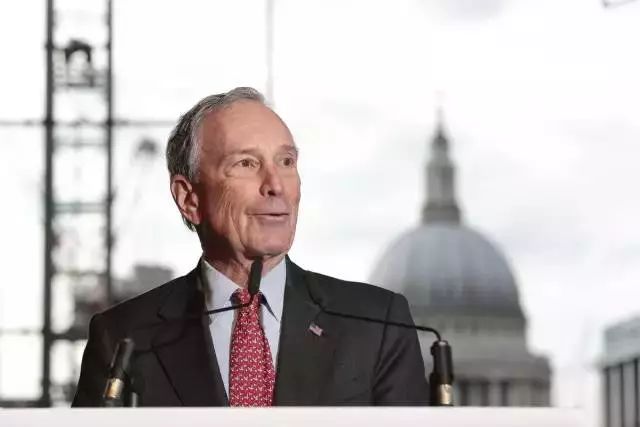
这样的人物在两个政党内都曾出现。20世纪30年代,路易斯安那州有独裁式人物休伊·朗(HueyLong);密歇根州则有库格林神父(Father Coughlin),他将当时美国的困境归罪于“犹太阴谋家”。
40年代有查尔斯·林德伯格(Charles Lindbergh),50年代有乔·麦卡锡(Joe McCarthy),60年代有乔治·华莱士(George Wallace),90年代有帕特·布坎南(Pat Buchanan)。每一个时代都有那个时代的煽动者。而每一代人都挺身而出,阻止了这些人入主白宫的企图。至少到目前为止是如此。
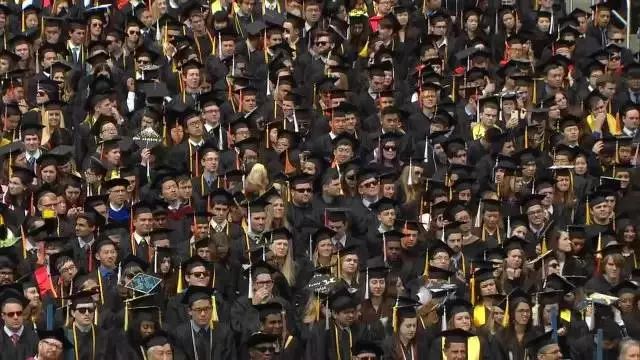
在今年的总统大选中,两党的煽动态势是我前所未见的。美国正面临严峻而艰难的挑战,但双方候选人非但不提供实际的解决办法,还顺手将我们的问题归咎于招致人们怨愤的某些群体。
共和党人把矛头指向墨西哥非法移民以及穆斯林。民主党人则指责富有阶层和华尔街。但事实上,责怪别人解决不了任何问题。
那么,要找到身先士卒而不是跟随在后的领袖,为什么如此之难呢?
根据我的经验,其中一个理由就是:如今的民选官员要是支持某项有争议的政策,他们收到的将不只是愤怒的信件、电话和传真。他们还会在Twitter和Facebook上收到成千上万的斥骂之辞。
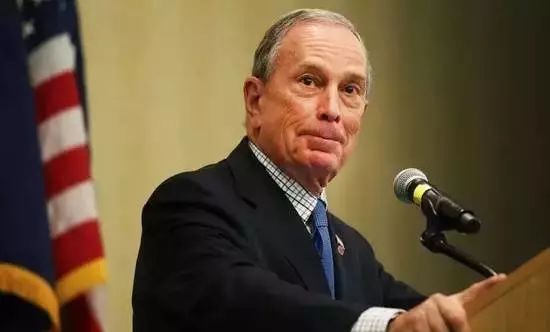
这就是行动中的民主。但这种即时声讨也让民选官员畏首畏尾,即便内心深知是正确的,也不敢付诸行动。
其实,行动中的民主会催生大量的不作为,在华盛顿和其他各级政府,这样的事情屡见不鲜。一旦政府未能解决公众的需求,两个党派的选民都会义愤填膺,一些政客便利用民怨兴风作浪,提供替罪羊而不是解决方案。
要想阻止这些煽动者,我们就得重掌局面,为此,我们要更加文明,支持、奖励那些敢于担当、能够克服党派之见去寻求妥协的政治家。
做到这点绝对不会容易,因为改变公民对话形式的不只是社交媒体。手机、电脑和电视用新闻连番轰炸,给我们造成获取知识的假象。然而,许多来源、事实和解读要么是真假难辨,要么夹杂党派之见,甚至纯粹是一派胡言。

我之所以这样说,是因为作为一家媒体公司的老板,我目睹了市场的转变。如今,人们挑选跟自己立场一致的有线电视频道和网站,不断固化自己的政治信仰,而不是去寻找启发或挑战。结果,我们在政治上变得越来越固执己见,越来越不能容忍不同意见者。
不妨看一下这组数据:1960年,4%到5%的民主党人和共和党人表示,如有家庭成员和对方党派结婚,他们会颇感不快。2010年,三分之一的民主党人和半数共和党人表示,他们会反对这样的婚姻。
1960年,多数人怎么都不会相信,跨种族和同性婚姻能得到如此程度的接纳,而与此同时,跨党派婚姻却会遭遇此等阻力。
美国在文化包容性上取得了长足的进展,但在政治包容性上,美国却正在倒退——竞选集会演变为暴力冲突,社交媒体上的线程对沦为谩骂,大学师生们试图审查政治对手。

虽然美国政治体制向来稳固,但民主是脆弱的——煽动家总是如影随行。要阻止他们,就要将开放的心态和投票作为重中之重,并要求政客们提供切实可行的解决方案,而不是替罪羊或乌托邦式的承诺。
1928年,共和党曾许诺让家家户户“锅里有鸡,后院有车”。他们赢得了国会和白宫的控制权,但一年之后,人们得到的不是鸡和汽车,而是大萧条。
今天,当一个民粹主义候选人承诺给你免费大学、免费医疗和小马驹的时候,当一个候选人承诺让别国为我们的需求付账的时候,请记住:
那些答应给你免费午餐的人,最终会拿你当早餐。
赞赏,让你的“言值”爆表
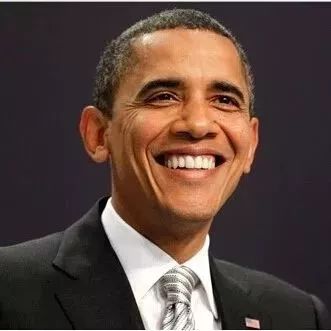
精彩英语演讲
自信英文演讲,从这里开始
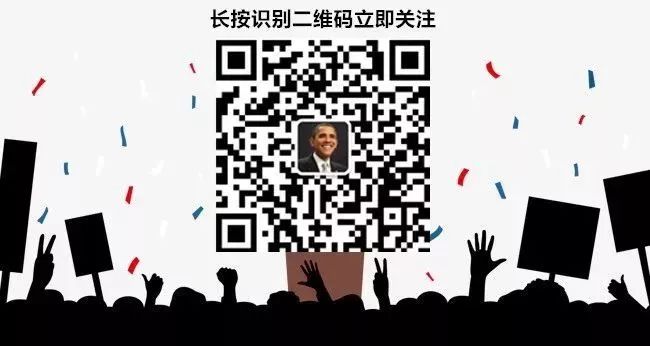
想第一时间接收英语演讲文章&视频?置顶精彩英语演讲就对了!操作办法就是:进入公众号——点击右上角的●●●——找到“置顶公众号”—— 开启。




